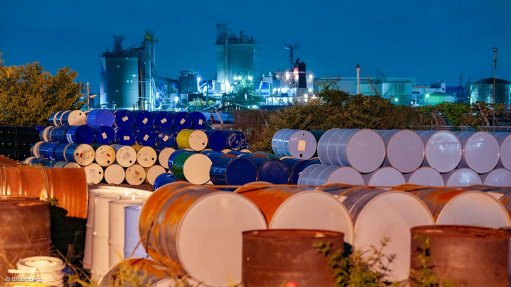How load-shedding is inadvertently creating eco-friendly businesses
This article has been supplied as a media statement and is not written by Creamer Media. It may be available only for a limited time on this website.
While the latest bout of load-shedding has been aggressive and arguably detrimental to the functioning of business of all scales across South Africa, creating a silver lining in every grey cloud remains one of South Africa’s greatest strengths. In this case, the fact that continuing load shedding has pushed business owners into educating themselves about and implementing greener and more sustainable practices within their businesses.
To safeguard against having to shut their doors, businesses are increasingly looking into alternative power supply solutions. These range in scale, complexity and cost, from installing battery-powered LED light bulbs to literally keep the lights on, to backup power systems, such as uninterrupted power supply (UPS) devices and power inverters attached to an external power supply like solar or batteries, that can be used to power computers, Wi-Fi routers, and office appliances and equipment.
With fossil fuels, such as coal, oil and gas, being by far the largest contributor to global climate change and accounting for over 75 percent of global greenhouse gas emissions and nearly 90 percent of all carbon dioxide emissions, alternative energy solutions – whether employed out of necessity or a sense of environmental responsibility – make a huge difference.
Energy efficient equipment and systems are the next port of call businesses are looking into, to ensure the power supply they do have isn’t rapidly depleted by high-consumption devices. This might mean swopping out older printer models, for example for newer, more advanced and efficient ones.
“Heat Free technology, for example, uses no heat in the ink ejection process unlike traditional printer models, and delivers lower power consumption as a result,” says Yudheer Harbhajun, Office Automation Sales Manager at Epson South Africa. “Aside from it being a good solution to the hassle of load-shedding, opting for more energy efficient equipment and devices is definitely a win for the environment, and a happy consequence of load-shedding in my opinion.
“In fact, Epson’s inkjet printers consume up to 85% less energy than a similar-speed laser printer, which means, for a typical office that requires frequent printing, this not only amounts to distinct savings in their annual energy costs, but a massive reduction in the carbon footprint of a business,” he continues.
Newer, more technologically advanced models are also a great deal more compact, being manufactured using less parts. They’re also easier to maintain, with innovations such as Epson’s cartridge-free ink refill system. The result is less environmental damage due to the manufacture of single-use items like printing cartridges, and less office equipment destined for landfills.
Eco-friendly workspaces have also become the order of the day (albeit, for reasons related more to convenience and access to connectivity, but another happy coincidence from an environmental point of view, nevertheless).
This could take the form of smart hubs and systems, which are on the rise within office spaces, that can be programmed to dim lights and turn off air-conditioning in areas of the office that aren’t in use.
Making use of shared office spaces is another out of necessity and convenience, in most cases, is a huge step towards eco-conscious work environments, as sharing of resources inevitably means less waste. In addition, with load shedding causing incessant traffic jams due to traffic lights going down, many businesses are making provisions for staff to work from home instead of driving to the office, saving the environment from CO2 emissions.
With businesses increasingly implementing measures to help soften the blow of load-shedding that happen to be better for the planet, a positive future impact on the environment is inevitable. With this in mind, the hope is that businesses become more intentional about reducing their carbon footprint, seeing how simple and easy it can be to go green.
Comments
Press Office
Announcements
What's On
Subscribe to improve your user experience...
Option 1 (equivalent of R125 a month):
Receive a weekly copy of Creamer Media's Engineering News & Mining Weekly magazine
(print copy for those in South Africa and e-magazine for those outside of South Africa)
Receive daily email newsletters
Access to full search results
Access archive of magazine back copies
Access to Projects in Progress
Access to ONE Research Report of your choice in PDF format
Option 2 (equivalent of R375 a month):
All benefits from Option 1
PLUS
Access to Creamer Media's Research Channel Africa for ALL Research Reports, in PDF format, on various industrial and mining sectors
including Electricity; Water; Energy Transition; Hydrogen; Roads, Rail and Ports; Coal; Gold; Platinum; Battery Metals; etc.
Already a subscriber?
Forgotten your password?
Receive weekly copy of Creamer Media's Engineering News & Mining Weekly magazine (print copy for those in South Africa and e-magazine for those outside of South Africa)
➕
Recieve daily email newsletters
➕
Access to full search results
➕
Access archive of magazine back copies
➕
Access to Projects in Progress
➕
Access to ONE Research Report of your choice in PDF format
RESEARCH CHANNEL AFRICA
R4500 (equivalent of R375 a month)
SUBSCRIBEAll benefits from Option 1
➕
Access to Creamer Media's Research Channel Africa for ALL Research Reports on various industrial and mining sectors, in PDF format, including on:
Electricity
➕
Water
➕
Energy Transition
➕
Hydrogen
➕
Roads, Rail and Ports
➕
Coal
➕
Gold
➕
Platinum
➕
Battery Metals
➕
etc.
Receive all benefits from Option 1 or Option 2 delivered to numerous people at your company
➕
Multiple User names and Passwords for simultaneous log-ins
➕
Intranet integration access to all in your organisation


















